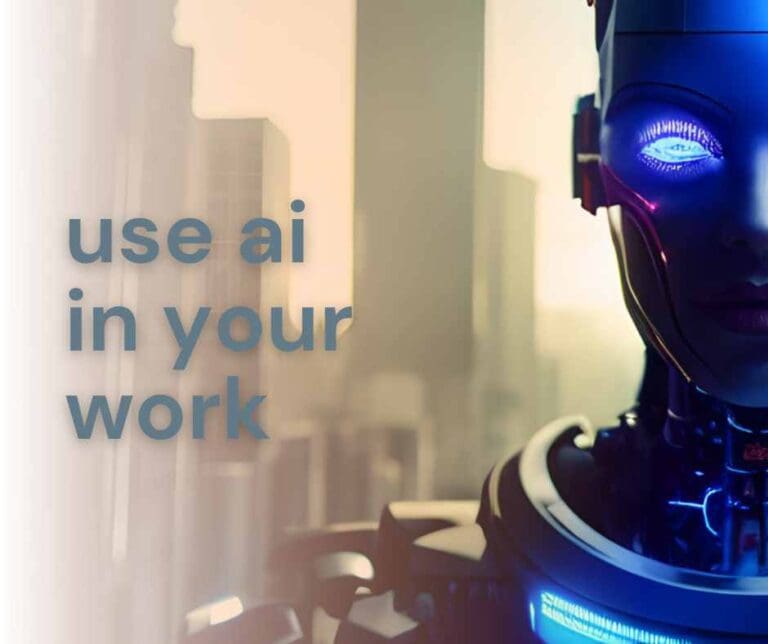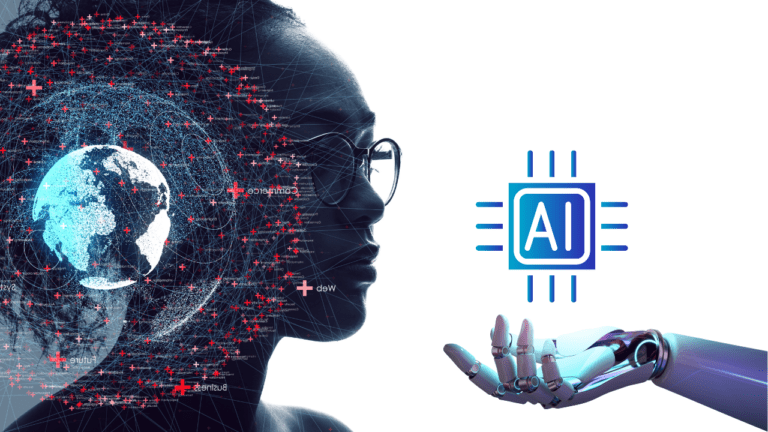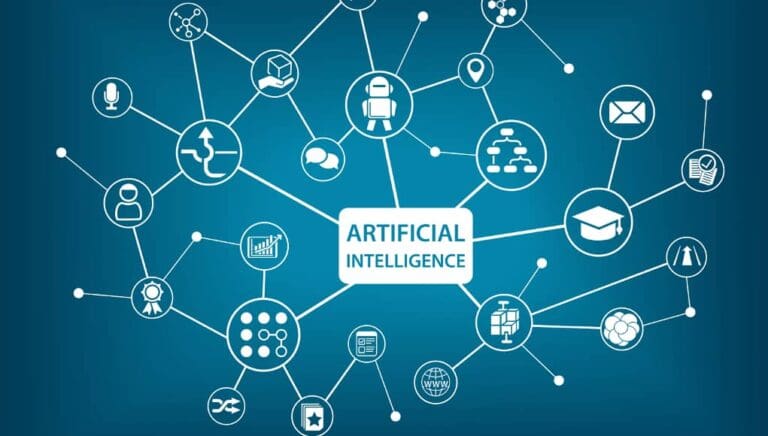AI Demystified: A Simple Understanding
Welcome to the AI Revolution!
In a world that seems to be driven by buzzwords and technological advancements, one term stands out as both enigmatic and transformative: Artificial Intelligence (AI). You may have come across it in conversations, news articles, or even your smartphone’s voice assistant. But what exactly is AI? How does it work? And why is it reshaping the world as we know it? Buckle up as we embark on a journey to demystify AI, breaking it down into simple words and exploring its immense potential for the future.
What is AI, in Simple Words?
Imagine having an intelligent companion who can perform tasks, make decisions, and even learn from experiences, all without being explicitly programmed. That’s essentially what AI is: the development of computer systems that possess human-like intelligence. These systems simulate cognitive processes, enabling them to analyze, reason, and adapt to new information. In simpler terms, AI refers to machines that can think and learn, just like humans do.
AI: Understanding the Four Types
When it comes to AI, it’s important to understand that not all intelligence is created equal. In fact, there are four distinct types of AI:
- Reactive Machines: These AI systems operate purely in the present, reacting to situations based on predefined rules and patterns. They don’t have memory or the ability to learn from past experiences.
- Limited Memory: As the name suggests, these AI systems can learn from the past by using their memory to make informed decisions. They can process historical data and adjust their behavior accordingly.
- Theory of Mind: This type of AI goes beyond memory and starts to understand the concept of other entities having thoughts, emotions, and intentions. These systems can predict and comprehend human behavior to a certain extent.
- Self-Awareness: The pinnacle of AI development, self-aware systems possess a consciousness and a deep understanding of themselves and their surroundings. While this level of AI is mostly theoretical at present, it sparks countless philosophical debates.
Why is Understanding AI Difficult?
The realm of AI can be challenging to grasp, primarily due to its multidisciplinary nature and the rapid pace of advancements. Here are a few reasons why understanding AI might seem like tackling a Rubik’s Cube blindfolded:
- Complexity: AI encompasses a diverse range of concepts, from machine learning to neural networks and natural language processing. Navigating this vast landscape can be overwhelming without proper guidance.
- Technical Jargon: Like any specialized field, AI has its fair share of technical jargon that can seem like an alien language to those unfamiliar with it. But fear not, for we’re here to decode it!
- Rapid Progression: AI technologies are evolving at an astonishing rate. What seemed groundbreaking yesterday may become outdated today. Staying up to date with the latest trends can be a challenge, even for experts in the field.
How AI is Reshaping the World
From healthcare to finance, transportation to entertainment, AI is permeating every aspect of our lives. Here’s a glimpse of how this transformative technology is reshaping the world:
- Enhanced Efficiency: AI-powered algorithms are revolutionizing industries by automating repetitive tasks, streamlining processes, and making data-driven decisions in real time.
- Personalized Experiences: Thanks to AI, our digital interactions have become increasingly tailored to our preferences. Recommendation systems, virtual assistants, and targeted advertisements are just a few examples of AI-driven personalization.
- Revolutionizing Healthcare: AI is making breakthroughs in disease diagnosis, drug discovery, and patient care. Advanced algorithms can analyze medical images and detect anomalies with remarkable accuracy, aiding radiologists in detecting early signs of diseases like cancer. Furthermore, AI-powered chatbots and virtual assistants are enhancing patient experiences by providing instant responses to common medical queries and reducing the burden on healthcare professionals.
- Transforming Transportation: Self-driving cars powered by AI are no longer a futuristic concept but a reality. These vehicles leverage AI technologies such as computer vision and machine learning to navigate roads, avoid obstacles, and improve overall road safety. Additionally, AI is optimizing traffic management systems, reducing congestion, and enhancing public transportation systems.
- Revitalizing Education: AI is revolutionizing the way we learn. Intelligent tutoring systems provide personalized guidance to students, adapting to their individual needs and pacing. Moreover, AI-powered language translation tools facilitate global collaboration, bridging language barriers and opening up new avenues for learning.
The Three Key Elements for AI
To truly understand AI, it’s essential to grasp the three fundamental elements that drive its capabilities:
- Data: AI thrives on data, as it forms the foundation for training and learning. Vast amounts of data are collected, organized, and used to teach AI systems patterns, correlations, and decision-making processes.
- Algorithms: These complex mathematical models enable AI systems to process data, extract meaningful insights, and make predictions or decisions. Algorithms can range from simple rule-based systems to sophisticated deep-learning networks.
- Compute Power: AI’s computational prowess relies on powerful hardware and infrastructure. High-performance computing, cloud platforms, and specialized AI chips enable faster processing, making AI applications more efficient and scalable.
Does Siri Count as AI?
Ah, Siri, the iconic voice assistant that resides in our pockets. But is Siri truly AI? Well, yes, it is! Siri, along with other voice assistants like Google Assistant and Amazon Alexa, falls under the umbrella of AI. These virtual assistants leverage natural language processing and machine learning algorithms to understand and respond to user queries, provide information, perform tasks, and even engage in witty banter.
The Five Principles of AI
When we delve into the ethics of AI, we encounter the five principles that guide its development and deployment:
- Fairness: AI systems should be designed to treat all individuals fairly, without bias or discrimination. It’s crucial to ensure that AI algorithms do not perpetuate existing social inequalities.
- Transparency: Users should have visibility into how AI systems make decisions. Transparent AI allows for better accountability, understanding, and mitigation of potential biases or errors.
- Privacy: Safeguarding user data and respecting privacy are paramount. AI systems should uphold strict data protection measures, ensuring that personal information remains secure.
- Accountability: It’s essential to assign responsibility when AI systems cause harm or make erroneous decisions. Establishing clear lines of accountability ensures that appropriate actions can be taken when needed.
- Robustness: AI systems should be built to withstand adversarial attacks, ensuring their reliability and resilience in the face of unforeseen circumstances.
The Five Big Ideas in AI
As we explore the frontiers of AI, we encounter five significant ideas that shape its future:
- Machine Learning: At the core of AI lies machine learning, where algorithms learn from data and improve their performance over time. It enables systems to automatically identify patterns, make predictions, and adapt without explicit programming.
- Computer Vision: AI systems equipped with computer vision can interpret and analyze visual information, mimicking human visual perception. This technology has applications in image recognition, object detection, and even facial recognition.
- Natural Language Processing: NLP enables AI systems to understand and interpret human language, both written and spoken. It involves tasks such as language generation, sentiment analysis, and language translation. NLP allows machines to comprehend and respond to human commands, making interactions more intuitive and natural.
- Robotics: Combining AI with robotics brings intelligent machines to life. Robots equipped with AI capabilities can perceive their environment, make decisions, and interact with humans. From manufacturing to healthcare, robotic systems are being developed to assist, collaborate with, and even replace humans in various tasks.
- Ethics and Explainability: As AI becomes increasingly integrated into our lives, the ethical implications of its decisions and actions come to the forefront. Ensuring AI systems are explainable and transparent is crucial for building trust and addressing concerns related to bias, accountability, and unintended consequences.
The Five Stages of AI
The journey of AI can be categorized into five distinct stages:
- Reactive Machines: This stage encompasses AI systems that can react to stimuli based on predefined rules and patterns but lack memory or the ability to learn from experience.
- Limited Memory: Systems in this stage can learn from historical data and adjust their behavior accordingly. They possess the ability to adapt based on past experiences, making them more capable and versatile.
- Theory of Mind: AI systems in this stage start to understand the concept of other entities having thoughts, emotions, and intentions. They can predict and interpret human behavior, making interactions more nuanced and empathetic.
- Self-Awareness: The holy grail of AI development, self-aware systems possess a consciousness and a deep understanding of themselves and their surroundings. While this stage is mostly theoretical at present, it represents the ultimate goal of AI research.
- Artificial General Intelligence (AGI): AGI refers to AI systems that can understand, learn, and apply knowledge in any intellectual task that a human being can do. AGI surpasses human-level intelligence and is capable of independent reasoning and problem-solving.
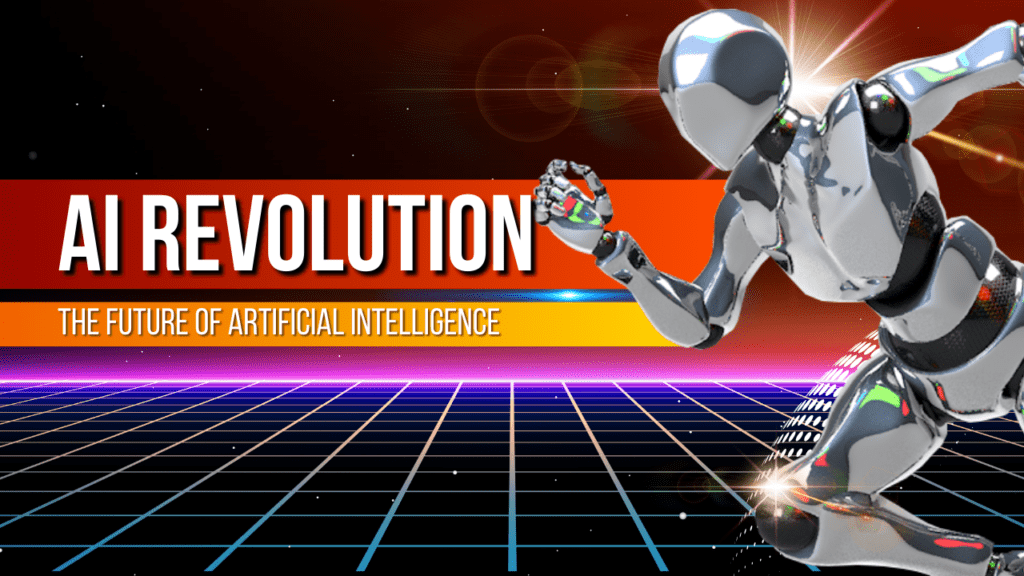
Practical Applications of AI in Everyday Life
AI’s impact extends far beyond sci-fi scenarios. It has found its way into various aspects of our everyday lives, making tasks more convenient, efficient, and enjoyable:
- Personal Assistants: Voice-activated assistants like Siri, Alexa, and Google Assistant help us with tasks such as setting reminders, answering questions, playing music, and controlling smart devices, all through natural language interaction.
- Recommendation Systems: AI-powered recommendation algorithms personalize our digital experiences, whether it’s suggesting movies on streaming platforms, curating news articles, or offering product recommendations based on our browsing history.
- Virtual Shopping: AI enables personalized virtual shopping experiences, where algorithms analyze user preferences and behavior to provide tailored product recommendations. Virtual try-on technologies and augmented reality enhance the online shopping experience.
- Smart Home Automation: AI-driven home automation systems can control and optimize energy usage, monitor security, adjust temperature and lighting, and even learn our habits to create a comfortable and efficient living environment.
- Healthcare Advancements: AI aids in disease diagnosis, drug discovery, and personalized treatment plans. Medical imaging analysis, virtual health assistants, and wearable devices that monitor vital signs are all examples of how AI is revolutionizing healthcare.
AI Education and Self-Development
For those eager to explore the world of AI and equip themselves with the skills needed to thrive in this era of technological innovation, there are several paths to consider:
- Foundational Knowledge: Start by understanding the basics of AI, including its concepts, terminology, and various subfields such as machine learning, deep learning, and natural language processing.
- Coding and Data Skills: Developing proficiency in programming languages like Python and acquiring data manipulation and analysis skills are crucial for working with AI. Familiarize yourself with libraries and frameworks such as TensorFlow, PyTorch, and sci-kit-learn, which are commonly used in AI development.
- Machine Learning: Dive deeper into the world of machine learning algorithms and techniques. Understand supervised and unsupervised learning, explore regression, classification, and clustering algorithms, and learn how to evaluate model performance.
- Specialized AI Fields: Depending on your interests, consider exploring specialized fields within AI, such as computer vision, natural language processing, or robotics. These areas offer unique opportunities for innovation and application.
- Real-world Projects and Challenges: Engage in hands-on projects and participate in AI competitions to apply your knowledge and gain practical experience. Collaborate with others in the AI community, share ideas, and learn from their expertise.
- Continuous Learning and Adaptation: AI is a rapidly evolving field, so staying updated with the latest research, technologies, and trends is essential. Follow reputable AI publications, attend conferences, and join online communities to stay connected and informed.
What’s Next in AI?
The future of AI holds immense potential for advancements that will further shape our lives. Here are a few trends and possibilities to keep an eye on:
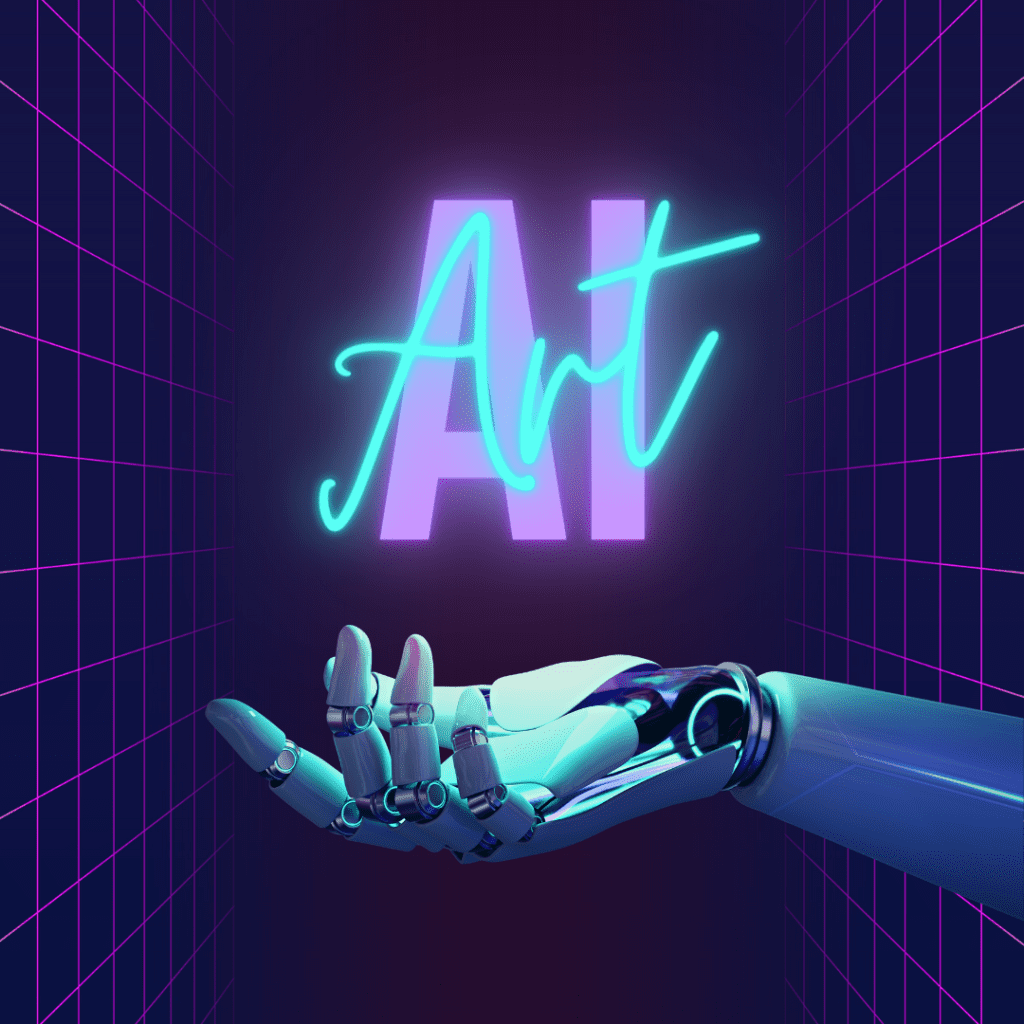
- Scale AI: Scale AI refers to the use of AI to handle and analyze massive amounts of data efficiently. It involves developing systems that can process and make sense of the ever-increasing data generated in our digital world.
- AI-ML Engineering: AI and machine learning engineering will continue to evolve, focusing on developing robust, scalable, and secure AI systems. This field combines software engineering principles with AI techniques to build reliable and efficient AI-powered applications.
- Applied AI: The application of AI in various domains, such as healthcare, finance, and cybersecurity, will expand. AI will play a critical role in solving complex problems and improving decision-making processes across industries.
- Causal AI: Causal AI aims to understand cause-and-effect relationships in data, going beyond correlation. This field explores how AI systems can uncover causal relationships and make predictions based on causal inference.
- Cognitive AI: Cognitive AI focuses on developing systems that can mimic human cognitive processes such as reasoning, problem-solving, and decision-making. This area aims to build AI that can understand and interact with humans in a more natural and intelligent manner.
In Elon Musk’s Words
Elon Musk has expressed concerns about the development of artificial intelligence (AI) and the potential risks it poses to society and humanity. He has called for a pause on the development of the most advanced AI systems, warning that AI tools present “profound risks to society and humanity”.
Musk has criticized the “out-of-control race” to develop more advanced AI and has urged for government oversight because the tech is “a danger to the public”.
He has also advocated for AI regulation and has sought a regulatory authority to ensure that the development of AI serves the public interest. Musk has warned that AI is more dangerous than mismanaged aircraft design or bad car production and has said that it has the potential to destroy humanity. He is reportedly establishing his own generative AI project called X.AI, which will compete against Microsoft-backed OpenAI. He has also spoken about plans for his own AI development, including a “maximum truth-seeking AI that tries to understand the nature of the universe” called “TruthGPT”.
Musk believes that an AI that cares about understanding the universe is unlikely to annihilate humans because we are an interesting part of the universe.
The Best Courses for Artificial Intelligence
If you’re looking to delve deeper into AI and acquire in-depth knowledge, there are several reputable courses available. Some highly recommended ones include:
- AI for Everyone – Beginner Course by Coursera
- Elements of AI by the University of Helsinki (free)
- Artificial Intelligence Nanodegree by Udacity
- Professional Certificate in Computer Science by Harvard University
- Artificial Intelligence Graduate Program by Stanford University School of Engineering
- Introduction to Tensorflow by Coursera
These courses cover a wide range of topics, such as machine learning, deep learning, natural language processing, robotics, and more. Some of these courses are free, while others require payment. They are offered by reputable institutions such as Harvard, MIT, Stanford, and IBM. Learners can choose courses based on their level of expertise, from beginner to advanced. It is important to note that most AI courses assume basic knowledge of statistics, probability, linear algebra, calculus, and programming, so it is recommended to have some background in these subjects before taking these courses.
Remember that learning AI is not limited to formal courses alone. Engaging in self-study through books, online tutorials, and experimenting with open-source AI projects can also broaden your understanding and expertise.
The Power of IBM Watson
When discussing AI, it’s impossible to ignore the significant contributions made by IBM Watson. Watson is an AI system developed by IBM that utilizes natural language processing, machine learning, and other AI techniques to analyze vast amounts of data, understand complex questions, and provide intelligent answers.
Watson has been applied in various domains, including healthcare, finance, and customer service. For example, it has assisted in diagnosing diseases, improving customer support through chatbots, and enabling personalized financial advice based on individual preferences.
Embracing AI in Business
AI offers numerous opportunities for businesses to gain a competitive edge and drive innovation. Some common applications of AI in the business landscape include:
- Enhanced Customer Experience: AI-powered chatbots and virtual assistants can provide personalized and efficient customer support, improving satisfaction and engagement.
- Predictive Analytics: AI algorithms can analyze large datasets to identify patterns, trends, and correlations, helping businesses make informed predictions and optimize decision-making processes.
- Process Automation: AI can automate repetitive tasks, reducing human error and freeing up valuable time for employees to focus on higher-value activities.
- Fraud Detection: AI algorithms can detect anomalies and patterns in data to identify potential fraudulent activities, enhancing security and minimizing financial losses.
- Market Analysis and Insights: AI-powered analytics tools can process vast amounts of market data, providing businesses with valuable insights into consumer behavior, market trends, and competitive landscapes.
By embracing AI in their operations, businesses can streamline processes, improve productivity, and unlock new opportunities for growth and innovation.
Unleashing the Potential of AI
Artificial Intelligence, once the realm of science fiction, has become an integral part of our lives. Understanding AI’s basic concepts, its various types, and its transformative impact is crucial in navigating the ever-evolving technological landscape.
As AI continues to advance, it presents immense opportunities for individuals and businesses alike. By developing the necessary skills, staying informed about the latest trends, and embracing ethical practices, we can unlock the true potential of AI and shape a future where human intelligence and machine intelligence collaborate synergistically.
So, take the plunge into the world of AI, explore its wonders, and be part of a journey that has the power to reshape our world and create a future that was once only imagined in the realms of science fiction.




